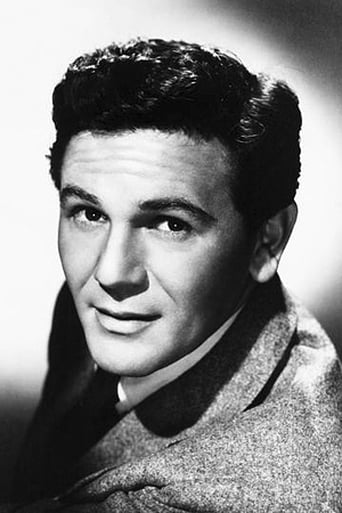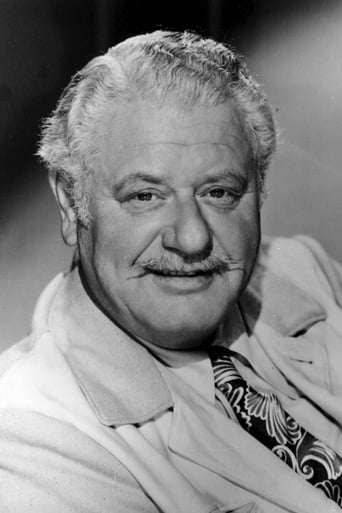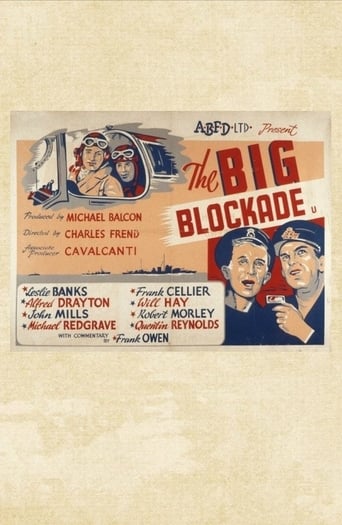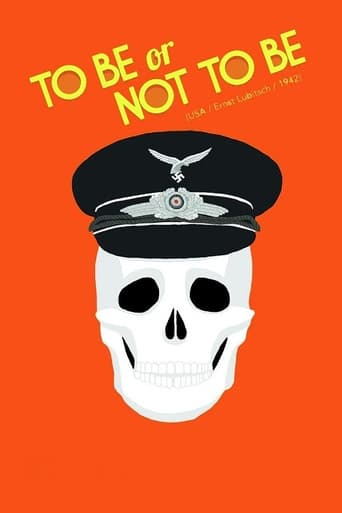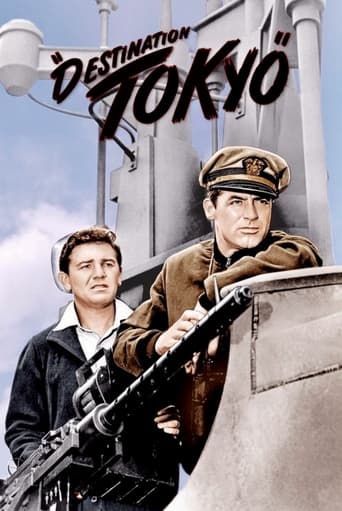
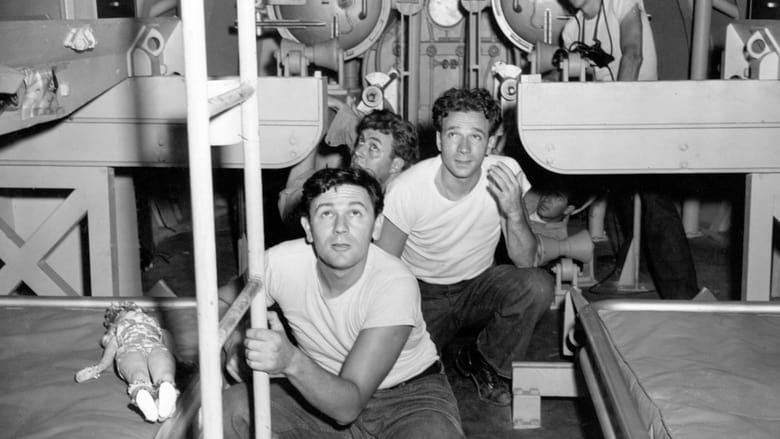
Destination Tokyo (1943)
During World War II, Captain Cassidy and his crew of submariners are ordered into Tokyo Bay on a secret mission. They are to gather information in advance of the planned bombing of Tokyo. Along the way, the crew learn about each other as they face the enemy and some of them lose their lives.
Watch Trailer
Cast
Similar titles
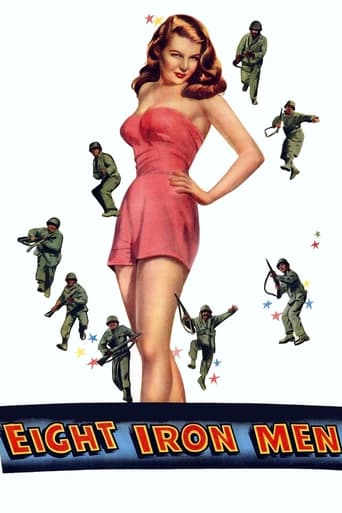

Reviews
Don't listen to the negative reviews
I cannot think of one single thing that I would change about this film. The acting is incomparable, the directing deft, and the writing poignantly brilliant.
A lot of perfectly good film show their cards early, establish a unique premise and let the audience explore a topic at a leisurely pace, without much in terms of surprise. this film is not one of those films.
It's funny, it's tense, it features two great performances from two actors and the director expertly creates a web of odd tension where you actually don't know what is happening for the majority of the run time.
Sub movies up to recent times are one way or another seeking to borrow the formula Delmer Davies conceived for this timeless war picture. First, careful attention was paid to technical accuracy. So consistent was the movie to the procedures of WW2 subs, it was shown as part of the instructional program at the Groton Sub School. Second,the picture is punctuated by great action sequences quickly followed by personal profiles of the crew or the officers--but especially the crew. Alan Hale is memorable as Cookie. John Garfield nails it as the more-talk-than-action with the dames "Wolf." Dane Clark hits a homer as a transfer from the surface navy to the special world of the submariner. He gets dubbed "Tin Can" by Torpedo man and 1st Class Petty Officer Mike (Tom Tully) who is the older guy that rookie Robert Hutton ("Slim") gains guts and spiritual sustenance from on his first patrol. Of course Cary Grant is his magnetic self as the skipper of the USS Copperfin. A young Tony Curtis saw this movie and enlisted in the Navy during the war in hopes of becoming a submariner too (he didn't but years later he played one in Operation Petticoat along with his idol Cary Grant). Third, the movie respects the heck out of the sailors for what they do and their loved ones for the allegiance they bear them. Those three factors make the formula that--if adhered to--will invariably produce a submissible addition to the genre. Now, the movie is not without its flaws. The chronology is anti-historical. We are told that it is Christmas 1942 and the guys are about to assist in executing Doolittle's Raid. Problem is the raid went off 8 months earlier in April. The physical environment of the sub is too big, too comfy, and too dry. But these and other nit picks aside, check it out. I watch it 3 or 4 times a year--especially at Christmas time. I got the colorized version a few years before they went off the market. Contrary to the naysayers and purists, I am a fan of colorizing.When you watch it, try to put yourself in the desperate days just after Pearl Harbor when the nation was aching for some scrap of good news. From December '41 through March of '42, it was a succession of gloom, doom, and defeat in the Pacific. These guys are off to give the nation something to cheer about. Go along with that ride. Suspend disbelief. Acquire the climate of opinion that prevailed at that time. If you can do it: you will be transfixed.
A 'war' movie with virtually no 'action' is a new one on me. Okay it was done in Mr. Roberts but the vessel in Mr. Roberts was a supply ship and, by definition, operating away from the action whilst the submarine here is definitely in combat. Despite the lack of combat it keeps us interested via the obligatory Hollywood 'bomber crew' slant which offers as many diverse types as possible. Cary Grant - still doing his best in 1943 to avoid returning to England and enlist in the REAL armed forces unlike David Niven - is excellent as the captain as is John Garfield in his signature wise guy persona and, if it comes to that, the majority of the supporting cast.
Decent WW2 submarine drama. Decent plot, not based on a true story itself but based around an actual historic event, the Doolittle Raid. The structure, commands and regimens of a submarine crew seem quite authentic and sometimes give it a documentary feel.Can be a bit far-fetched at times though. Some episodes seem included just for glamour purposes, and, considering the movie was released in 1943, propaganda purposes.Decent action sequences.In keeping with the above point regarding propaganda, dialogue can also be overly bellicose and speech-like at times. Anything for a few war bonds...Solid performance by Cary Grant in the lead role. Good support all round.
By the time of its release of Warner Brothers DESTINATION TOKYO (1943), it was coming across crystal clear; The Allies were in for a long, drawn out war. False notion of a an early end to War, simply because the United States was now involved were certainly cast into the figurative "circular file" of life.The underlying circumstances, although basically the same is in the First World War, were complicated by both the political and geographical situations of World War II. The combatants in the First Conflict were made up of nations that were ruled by a group of cousins, better known as the Royal Families of Europe. The Theatre of War were limited to The Western Front in Europe (France, 1914-1918), the Italian & Austro-Hungarian Front (1914-18) and the Middle East Consisting of the fighting against the Ottoman Turkish Empire by the British and the Arab Militias in Arabia and Palestine (the Holy Land, Israel). By contrast, World War II had military engagement of a truly Global Magnitude. Hence we had major Fronts in Europe (Both Eastern and Western), North Africa, the whole Atlantic via combat from the U Boats, Iran, the China-Burma-India Theatre of War, Southeast Asia in Viet-Nam and Burma, Indonesia and the Australian-New Zealand Theatre, The Island Warfare in Polynesian, Melanesian and Micronesian Island Groups; as well as the whole Pacific.With such an overwhelmingly immense a job to be done (literally do or die, no ifs ands or butts about it), the full and whole hearted support was needed from the entire Nation; and it's obvious that everyone did. From the Soldier, Sailor, Marine, Airmen and Coast Guardsmen on the fronts to the industrial sector with its hard working corps of men and women; all pitched in and in going the extra mile, won the war.Hollywood sure did its part, as no one can deny. And with that, we are brought down to our subject at hand today.OUR STORY In DESTINATION TOKYO we have a feature film which is at once a fine example of top Movie Entertainment, a concise statement of U.S. Policy, a stirring statement of the underlying, unique reasons of our being involved in European and Asian conflicts and an inspirational fictional version of events that have transpired previously. In short, it was at least in part, a propaganda piece par excellence.The ship has a super secret mission, which proves difficult to the veteran submarine crew. Being experienced fighting men, they fail to understand. Passing up the opportunity to sink some of the enemy Japanese shipping is an unthinkable deed to the crew, both officers and enlisted men. The thought surely though silently, must pass through their collective minds; could this Captain Cassidy (Cary Grant) be afraid of combat? Is he filled with cowardice or could it be those unknown orders that are behind his reserved behaviour.Finally the big moment comes and the cat gets let out of the bag. The crew finds out the news that they are on a special mission of reconnaissance; rather than combat. They were to get in close to the Japanese coastline, within Tokyo's port city of Yokohama harbor itself. From there, a landing party of two would go in to the beach property in order to check local topography of the land, weather conditions, tides, local conditions of all types.This seemingly insignificant mission, it turns out, is a necessary step in carrying out the later air raids over the Japanese home islands. This is the very same raid that we have come to know as "the Doolittle Raid." Once the mission has been completed with and the landing party has successfully returned to the sub, they begin their tedious, nerve wracking business of sneaking back out of the chain-link fence protected Tokyo harbor, the Captain proclaims; "The Job's done! Nothing says we can't fight now!" (Or some such) They did and must have sunk half of the Imperial Fleet, in a sort of reverse Pearl Harbor. We can just see the moviegoers rising to their feet and cheering at this scene.The ship returns safely to San Francisco, from which it had come. Cary's wife (Miss Faye Emerson) and family stand waiting on the pier! THE END.The journey across the wide Pacific gave the crew to interact and tell us all about themselves. As was the usual practice, Warner Brothers made sure that the crew was a mixture, sort of like a pound assortment of chocolates. Hence, we have guys from all over: New York, the South, Texas, the Dakotas and California. The excellent work of cast members like John Garfield, Alan Hale, Dane Clark, John Forsythe and Bill Kennedy sparkled.WE must concentrate on Tom Tully's work as the career man Petty Officer, Joe. Through his dialogues with others, as contrasted with the way he eventually pays the ultimate price, makes for an excellent back-drop for expressing what was the difference between our way of life in the U.S.A. and the life of those brought up under a Militarist Totalitarian System. At times, the speeches delivered by the Captain and others may seem to be have been a little much in the post World War II era.But once that one considers the events of 9/11, well ..

